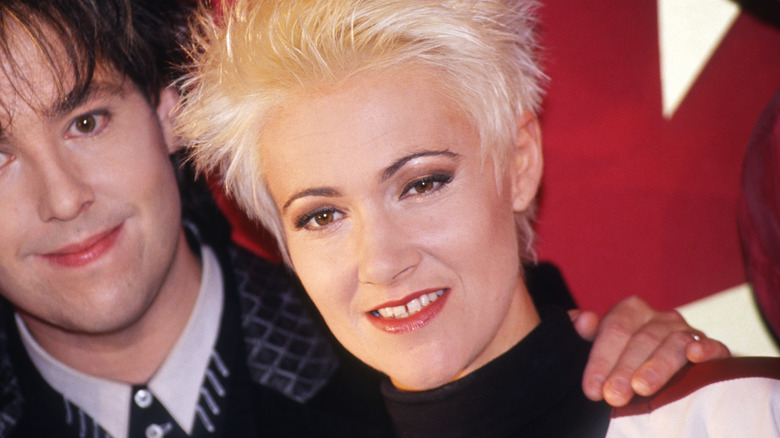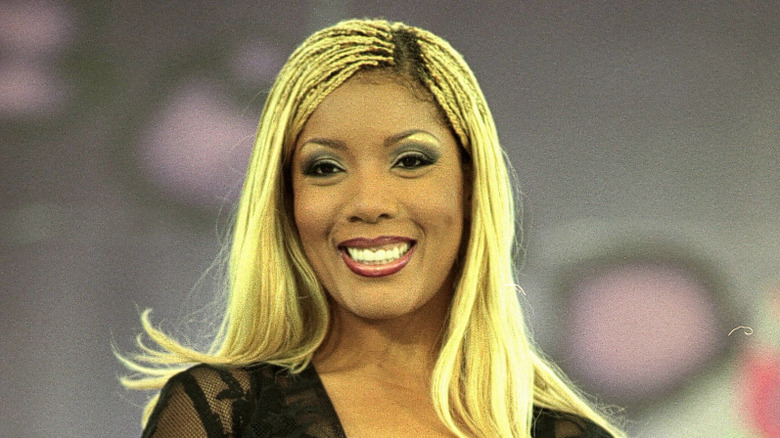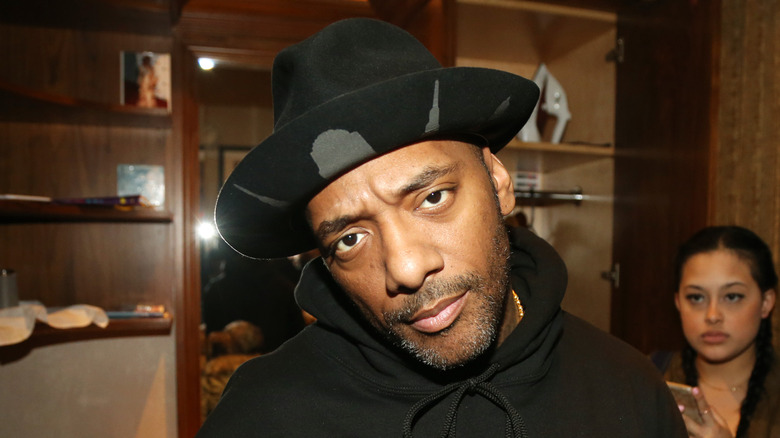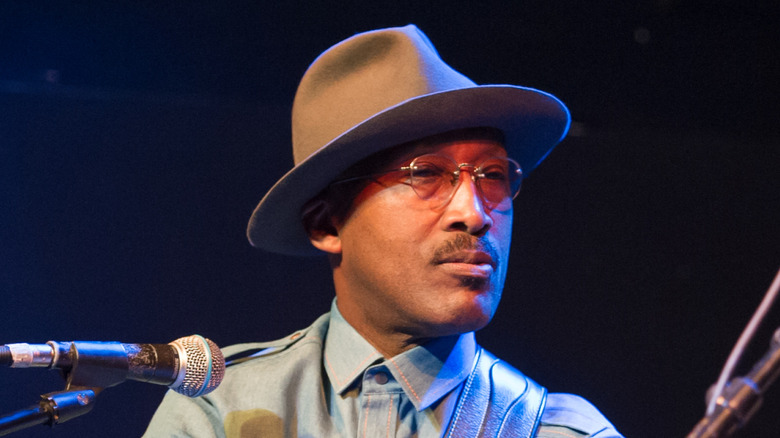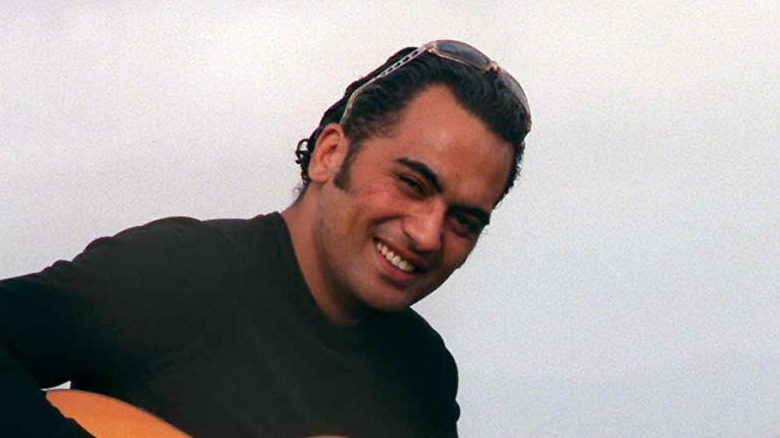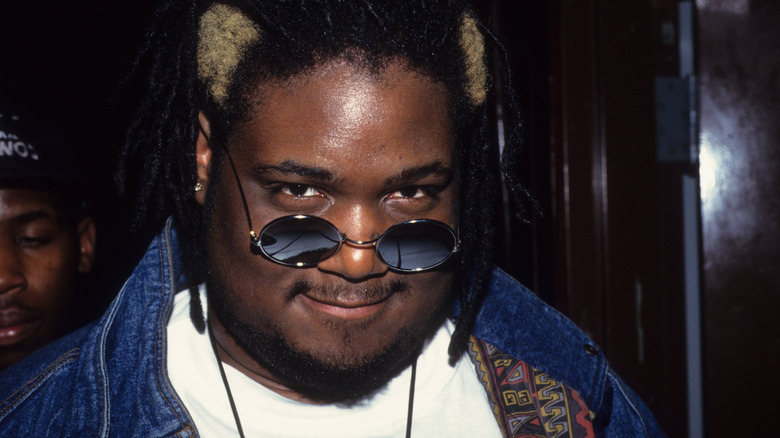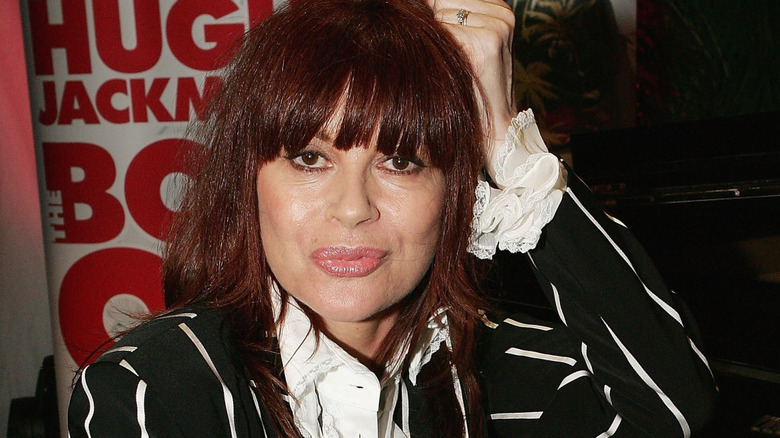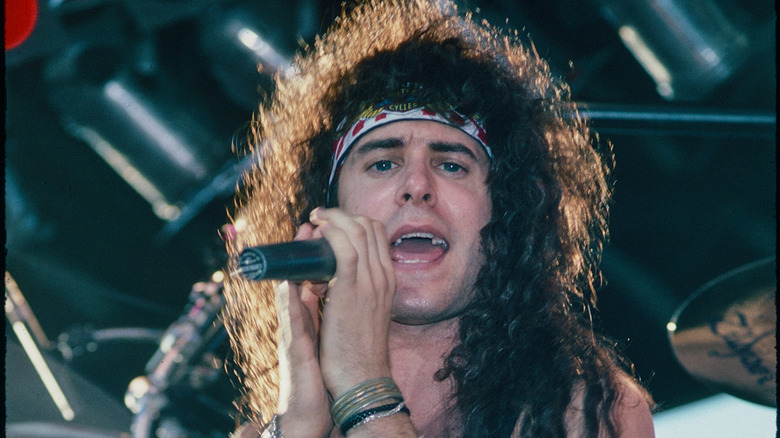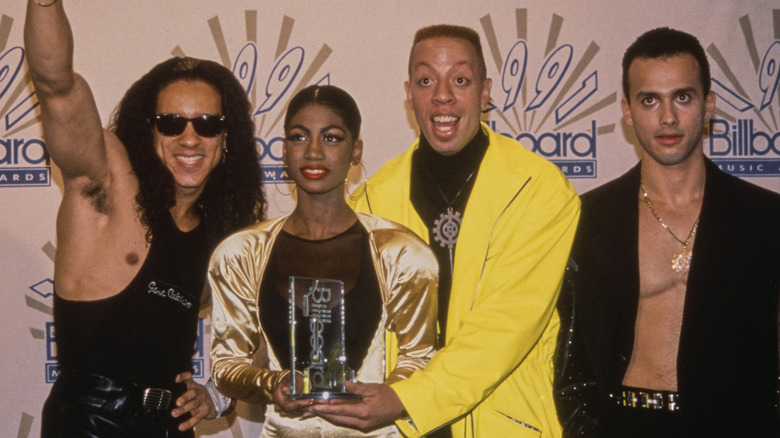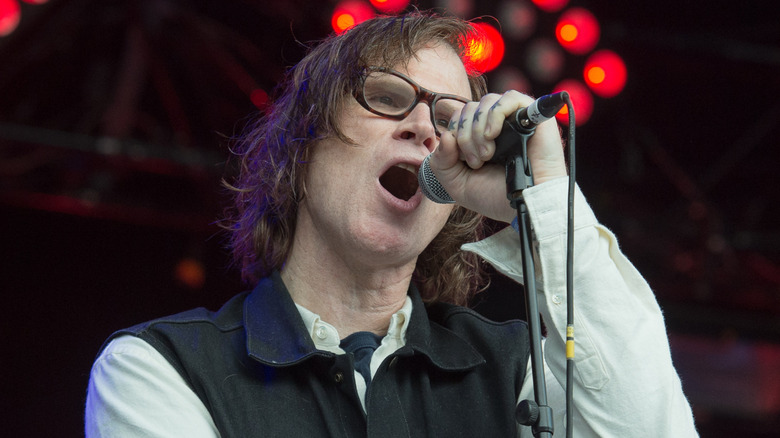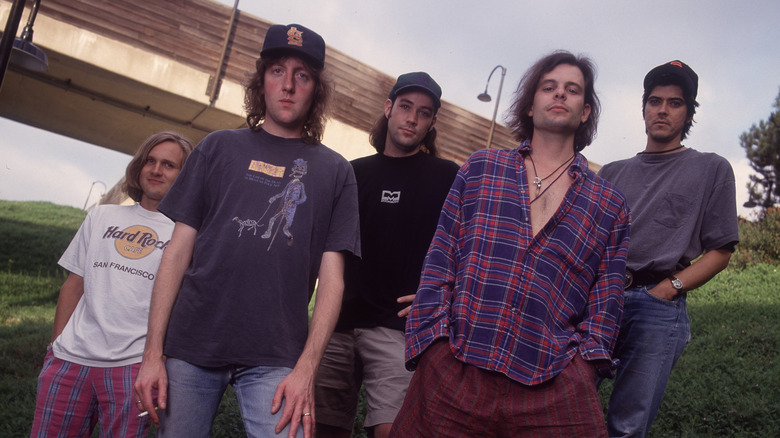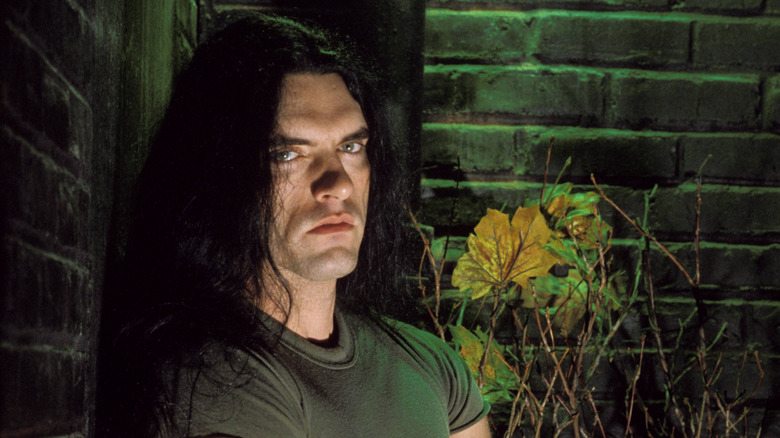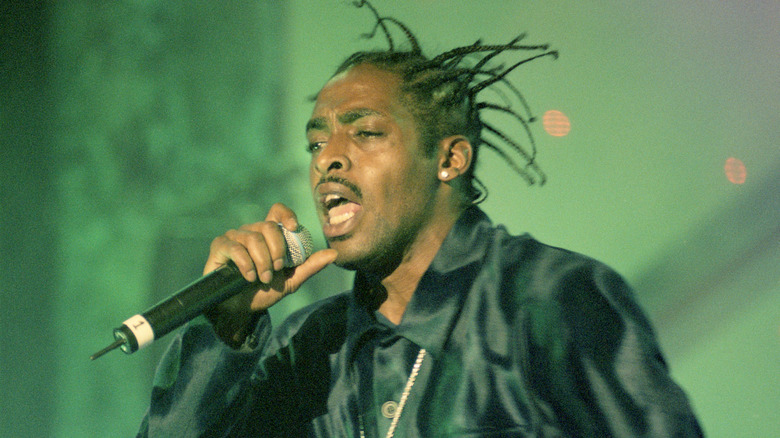'90s Musicians Who Died And No One Noticed
The music industry in the 1990s was a messed-up place and time, but it wasn't all bad. The final decade of the 20th century was one of the most fruitful, creative, and lucrative periods in pop culture, and what everyone was listening to on their personal CD players and car cassette decks was varied and exciting. In the 1990s, genres like gangsta and pop rap, dance music, grunge, and alternative rock all vied for record sales, chart placement, and the attentions of the masses. Artists could and did become huge stars on the strength of just a couple of singles or an audacious album, forever linking them to the 1990s.
But despite how popular and successful some of those bands, singers, rappers, and producers may have been for a significant period of time, and during such a monumental era, their status eventually faded away. They made great music, but they still became proverbial flashes in the pan. Being forgotten or overlooked with the passage of time is made all the more tragic when those once-major artists die. Often coming too soon and from horrifying causes, those deaths have been met with little fanfare and media attention. Here are some big musical stars of the 1990s who died and for some reason, it didn't much register with the general public.
Marie Fredriksson of Roxette
Between early 1989 and late 1991, Roxette was just about the most reliable hit machine working in pop music. In the Swedish duo, Per Gessle played most of the instruments and wrote the songs, while Marie Fredriksson provided the soaring vocals. Her work drove the success of No. 1 hit ballads like "Listen to Your Heart" and "It Must Have Been Love" (featured prominently in the smash-hit romantic comedy "Pretty Woman") as well as catchy dance-pop numbers such as "The Look" and "Joyride." Roxette's popularity in the U.S. died down in the mid-1990s, but the duo continued to score hits across Europe until the end of the decade.
In 2002, Fredriksson was diagnosed with cancer, in the form of a brain tumor. She underwent treatments and was pronounced healthy enough to return to making albums and playing shows in 2009. But under the advice of her doctors, Fredriksson stopped performing live in 2016 in order to devote more time to addressing her cancer. Fredriksson's health declined again, and she died in December 2019 at the age of 61.
Melanie Thornton of La Bouche
Shimmering melodies, thumping electronic percussion, and a soulful, gospel-inspired vocal performance were the key ingredients for 1990s dance pop, and La Bouche did very well for itself with that formula. After the demise of the fabricated and lip-syncing Milli Vanilli, producer Frank Farian created the act, setting up studio musicians with rapper Lane McCray and singer Melanie Thornton. Singles like "Fallin' in Love," "Be My Lover," and "Sweet Dreams" became inescapable in the dance clubs of Europe and the U.S., as well as on the pop charts.
When the 1990s turned into the 2000s, Thornton left La Bouche in the past to focus on a solo career, and her music sold particularly well in Germany, where the U.S.-born Thornton lived. In the midst of promoting a Christmas single in November 2001, Thornton took a flight on a small plane from Berlin to Zurich to perform a concert. As it approached the Zurich airport, the plane malfunctioned and crashed into a nearby forest. Thornton was among the 24 people onboard the flight who died. She was 33 years old.
Prodigy
Mainstream hip-hop explored the dark side of life in the mid-1990s, and Mobb Deep led the charge with back-to-back hardcore classics "The Infamous" and "Hell on Earth." The albums depicted in explicit and vivid detail a violent, stark, and horrifying world of life in New York City and its criminal underground. Mobb Deep was a duo, made up of art high school friends Kejuan Muchita, or Havoc, and Albert Johnson, better known as Prodigy.
Shortly after his birth, Prodigy was diagnosed with sickle cell anemia, a painful and often life-shortening disorder in which red blood cells change form and die off, resulting in issues with circulation, motor skills, and extreme fatigue. Sickle cell patients often require regular medical attention, and in June 2017, performing in the heat at an outdoor festival in Las Vegas left Prodigy feeling so awful that he checked into a hospital. While under the care of doctors, a greatly weakened Prodigy ate an egg in his hospital room, and a piece lodged itself in the rapper's airway. He choked to death at the age of 42.
D'Wayne Wiggins of Tony! Toni! Tone!
Tony! Toni! Toné! deftly combined elements of old-fashioned soul, funk, and jazz with contemporary pop and hip-hop structures. Guitarist and bassist D'Wayne Wiggins and his brother, singer Raphael Saadiq, joined up with their cousin, drummer Timothy Christian Riley, to form a band in 1986. By the start of the 1990s, the trio was churning out era-defining party-starters like "Feels Good" and "If I Had No Loot," and silky slow jams including "Anniversary" and "(Lay Your Head on My) Pillow."
After personal and professional tensions led to a split of the original lineup in 1998, Tony! Toni! Toné! got back together in 2023 to tour, and Wiggins was excited about recording a new album. "We got a lot of material, and now we just want to make sure that we put out the right energy through our music," he told the AP (via NPR). That project never came to pass. Around early 2024, Wiggins received a diagnosis of bladder cancer. In March 2025, he died from complications of the disease at the age of 64.
OMC
With a bouncy, circular Spanish-guitar riff serving as a hook, OMC lured in listeners from all over the world to its 1996 smash "How Bizarre." The song's lyrics told a dark story about a carjacking, delivered in a partially sung, partially rapped style by OMC leader Pauly Fuemana. The song scaled the charts in OMC's homeland of New Zealand, as well as in Austria, Germany, Sweden, the U.K., Australia, and the United States. (In another bit of irony and dark humor, OMC stood for "Otara Millionaires Club," a nod to Fuemana's home base, a historically poor suburb of South Auckland.)
Brothers Phil and Pauly Fuemana made up the core of OMC, and they both died unexpectedly and while relatively young. Phil Fuemana, who also worked as a label head and was regarded as a singularly important name in New Zealand hip-hop, died in February 2005 of a heart attack at the age of 41. Pauly Fuemana died five years later, age 40, from what was initially reported as pneumonia. His death certificate would later clarify that Fuemana died from progressive demyelinating polyneuropathy, a rarely diagnosed and rarely fatal degenerative autoimmune disease that destroys nerves around the body.
Prince Be of P.M. Dawn
Multiple styles of rap vied for attention and relevance in the early 1990s. Along with the pop radio-friendly tunes of the Fresh Prince and the scandalous, hard-edged work of acts like NWA, in came P.M. Dawn. Brothers Attrell and Jarrett Cordes, or Prince Be and DJ Minutemix, respectively, combined singing with rapping and introduced spirituality and psychedelic leanings into hip-hop. Hit albums like "Of the Heart, Of the Soul and of the Cross" and "The Bliss Album...?" arrived, generating moody, introspective, and progressive singles such as "I'd Die Without You," "Looking Through Patient Eyes," and the No. 1 hit "Set Adrift on Memory Bliss," which featured some of the most sampled songs of all time.
Attrell Cordes was diagnosed with diabetes in the 1990s, and he endured complications from the metabolic disease across the next two decades. In 2005, a stroke left Cordes unable to move half of his body, and he sustained the amputation of a leg below the kneecap. Following diminished faculties owing to renal kidney disease, Cordes died in a hospital in New Jersey in June 2016. Prince Be was 46 years old.
Chrissy Amphlett of Divinyls
A one-hit wonder who deserved more than 15 minutes of fame, Divinyls managed only one hit in the U.S., but it made a big impression. The bluntly racy surf-rock come-on "I Touch Myself" hit No. 4 in 1991, its rise fueled by a suggestive and provocative video featuring Divinyls singer Chrissy Amphlett. Briefly and barely a sensation in America, Divinyls fared far better in its native Australia. Formed as a New Wave band in the early 1980s, the group eventually released five albums and scored a number of hits.
Divinyls broke up in 2007, and Amphlett was diagnosed with breast cancer in 2010. An aggressive treatment regimen of radiation was precluded by Amphlett's multiple sclerosis. "It's unfair, but life is not fair — even rock stars get breast cancer," Amphlett said at the time (according to the Los Angeles Times). Three years later, Amphlett died in New York City from complications of the disease at the age of 53.
C.J. Snare of Firehouse
Power ballads changed rock forever, and those songs where heavy guitars met pleading, lovelorn lyrics helped many hair metal bands find mainstream success. In the waning days of that hard rock variant in the early 1990s, Firehouse was among the last of the hair metal bands to hit it big. Vocalist C.J. Snare co-wrote and sang on slow-dance favorites like "When I Look Into Your Eyes" and "Love of a Lifetime" as well as louder, more rocking tunes like "Don't Treat Me Bad."
In October 2023, Snare announced on his Instagram page that he'd undergone surgery on his abdomen, writing, "Time to recover and get back to the stage!" Snare noted in February 2024 that he was recuperating and improving, and that he planned to perform with Firehouse again later that year. But on April 5, 2024, Snare died at his home, a turn of events that stunned his bandmates. "We are all in complete shock with CJ's untimely passing," Firehouse wrote on its Facebook page. The singer, who was expectedly to fully recover from his operation, died at the age of 64. A lot of things come out about rock stars after they die, and for Snare, it was that he'd been diagnosed with cancer, and the cause of death was cardiac arrest.
David Cole
Not often a public-facing performer, David Cole (pictured in yellow jacket) nevertheless served as an architect of 1990s pop music. Cole spun records in New York City clubs, played on tracks for Janet Jackson and Fleetwood Mac, crafted dance remixes for Natalie Cole and Luther Vandross, and won an album of the year Grammy Award for helping to produce "The Bodyguard" soundtrack. He also teamed up with another producer, Robert Clivilles, to form the studio project C+C Music Factory. Fronted by rapper Freedom Williams, the collective's propulsive club song "Gonna Make You Sweat (Everybody Dance Now)" went to No. 1 in 1990. It was nearly joined at that peak by "Here We Go" and "Things That Make You Go Hmmmm..."
C+C Music Factory enjoyed its final Top 40 hit in the summer of 1994, "Do You Wanna Get Funky," co-written by Cole. By January 1995, the producer, songwriter, and musician was dead. Cole reportedly died of spinal meningitis, a disease he'd been diagnosed with about one year earlier. Cole was 32 years old. Months later, his death would inspire Cole's friend and frequent collaborator Mariah Carey to co-write the No. 1 hit ballad "One Sweet Day."
Mark Lanegan of Screaming Trees
The fuzzed-out, down-tuned sound and inward leanings of a handful of loosely connected Seattle-based bands made grunge the iconic rock style of the first half of the 1990s. One of those groups was Screaming Trees, the creative outlet for singer and songwriter Mark Lanegan. His gravelly vocals were all over alternative rock radio staples of the era, including "Nearly Lost You" and "All I Know," as well as a collection of solo records. After Screaming Trees took an indefinite break in 1996, Lanegan lent his skills to another hard rock band on the verge of success, Queens of the Stone Age.
A bout with the COVID-19 virus in 2021 resulted in Lanegan losing his ability to hear or walk. Lanegan was hospitalized for several months and placed in a medically induced coma, though he recovered enough that he wrote about the experience in the 2021 memoir "Devil in a Coma." In February 2022, Lanegan's account on X, formerly known as Twitter, announced that the musician had died at the age of 57. "Our beloved friend Mark Lanegan passed away this morning at his home in Killarney, Ireland," the statement read. "No other information is available at this time."
Doug Hopkins of the Gin Blossoms
Guitarist and songwriter Doug Hopkins formed the Gin Blossoms in the mid-1980s, recruiting his friend Bill Leen to play bass and getting his skateboarding pal Robin Wilson to sing. With a wry reference to a physical side effect of heavy drinking serving as the group's name (it refers to busted capillaries around the nose), the Gin Blossoms dominated the fertile Tempe, Arizona, music scene of the late 1980s.
Signed by A&M Records in 1990, the band got to work making a full-length album. Hopkins' lyrics reflected the symptoms of depression he'd long experienced, as well as his increasingly problematic addiction to alcohol, which made him an unreliable and difficult collaborator. Following the completion of production on what would be the band's first major album, 1992's "New Miserable Experience," the Gin Blossoms fired Hopkins at the behest of A&M Records. Throughout 1993, the Gin Blossoms' songs, particularly those written by Hopkins, performed very well. "Hey Jealousy" and "Found Out About You" were both Top 30 pop hits and Top 5 rock hits, and the band turned in national TV appearances and sold 40,000 copies of their album a week. Privately, Hopkins told friends that the band was exploiting him financially while he grew increasingly depressed over the Gin Blossoms' success from his work. In December 1993, the 32-year-old Hopkins died by suicide at home.
Peter Steele of Type O Negative
So loud, so heavy, and so very hard, Type O Negative was among the darkest metal bands of all time, beyond just its 1990s heyday. With songs preoccupied with death, pain, and the supernatural, the droning, dreary music was championed by the group's brooding, imposing, and deep-voiced frontman, Peter Steele.
In the mid-2000s, Steele retreated from public life to such a degree that fans speculated he'd died, a rumor Type O Negative turned into a hoax by reporting the musician's death on its website. Steele had actually checked into a drug rehabilitation center to treat profound addictions to cocaine and alcohol, as well as a mental health facility to cope with paranoia triggered by the cocaine. The musician also served a month in prison for assault. In April 2010, Type O Negative manager Mike Renault informed CBS News that Steele had died. "Peter passed away last night. As of now it appears to have been heart failure," he wrote. Post mortem, Steele's cause of death was discovered to have been sepsis, which occurs when the body fights an infection so hard that it breaks down. For Steele, the sepsis was a result of diverticulitis, an inflammation in the large intestine.
Coolio
Formerly known as Artis Ivey, Coolio came up with some Los Angeles hip-hop collectives before striking out on his own in 1994. The celebratory "Fantastic Voyage" was a No. 3 hit, and a year later, he released "Gangsta's Paradise," a harrowing narrative from the point of view of a gang member with few options. The song was featured in the movie "Dangerous Minds," spent three weeks at No. 1, and was the top single of 1995. More hits, both sunny and dark, followed, while Coolio evolved into a broader pop culture figure, hosting a cooking show and voicing Kwanzaabot on "Futurama."
On the afternoon of September 28, 2022, Coolio lost consciousness in a friend's bathroom, and he was discovered on the floor there, lying on his back. Emergency personnel arrived but were unable to revive the rapper. Paramedics initially believed that a heart attack was the cause of death, but after an investigation found drugs and related equipment nearby that belonged to Coolio, the Los Angeles County Medical Examiner performed an autopsy. The musician died from a combined overdose of heroin, methamphetamine, and fentanyl. Coolio was 59.
If you or anyone you know needs help with addiction or mental health issues or is struggling or in crisis, contact the relevant resources below:
- The Substance Abuse and Mental Health Services Administration website or contact SAMHSA's National Helpline at 1-800-662-HELP (4357).
- The Crisis Text Line by texting HOME to 741741, call the National Alliance on Mental Illness helpline at 1-800-950-NAMI (6264), or visit the National Institute of Mental Health website.
- Call or text 988 or chat 988lifeline.org

